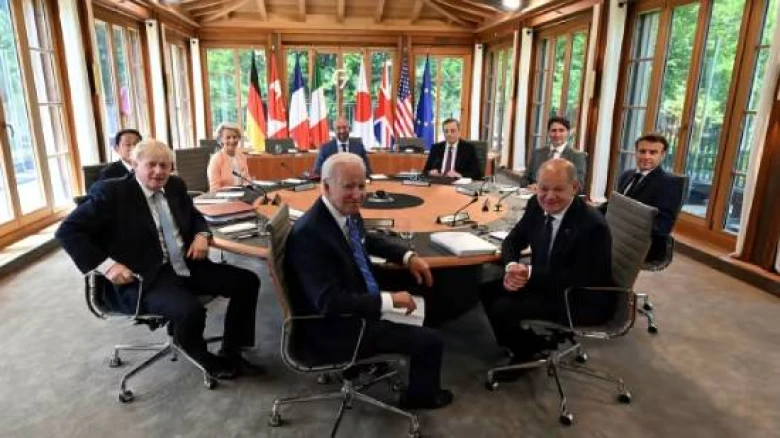North East

The minister stated that Russia will not provide any oil or oil-related items to nations that support the implementation of such a cap.
Digital Desk: With Moscow now announcing that it will respond by refusing to
sell oil, an impending G7 agreement to control Russian oil prices that is being
addressed Friday could buck this trend. Oil is down more than 3.2% on Thursday.
Finally,
Russia has publicly acknowledged that imposing price controls on its oil would
harm the global energy markets.
Russia announced in a statement published on Kommersant.ru on
Thursday that it would stop supplying oil to nations who want to set a price
restriction on its oil.
The G7
nations' plan to cap the price of Russian oil has been called a "total
nonsense" that will disrupt the entire industry, according to Deputy Prime
Minister Alexander Novak.
The
minister stated that Russia will not provide any oil or oil-related items to
nations that support the implementation of such a cap.
The
Deputy Prime Minister stated, "We simply will not supply such firms or
countries with oil and oil products because we will not operate in non-market
conditions.
Novak
also added that Russian businesses will be able to keep oil output at the same
level since they were well-prepared for an EU oil embargo. According to Novak,
Russia's production by year's end might reach 520-525 million tonnes, which
would be equal to the 524 million tonnes produced the year before.
Although the details of the final agreement and price level have
not yet been disclosed, the cap scheme, which was first proposed in June by
U.S. Treasury Secretary Janet Yellen, might be set at half of the Russian
purchasing price. The original plan was to set the cap above Russia's cost of
production in order to keep Russian oil on the market while lowering the amount
of money going into its war coffers.
Yellen
declared on Wednesday that she was "optimistic" the G7 will agree to
a price cap. She also met with UK Chancellor of the Exchequer Nadhim Zahawi,
who pledged British support for the proposal but pointed out that additional
countries would need to join it in order for it to be more successful.
Despite
the fact that Russian crude is currently selling at a $20/barrel discount,
Moscow's oil revenues have not been affected because Russia has discovered new
markets in India and China.
According to recent estimates, India significantly increased its
imports of cheap Russian oil during the second quarter while severely reducing
its crude imports from the United States by one million metric tonnes. India's
energy mix today differs significantly from what it did a year ago. Compared to the
U.S., which made up 9.2% of India's crude imports last year, Russian oil now
makes up over 12.9% of those imports, while the U.S. share has dropped to just
5.4%.
Leave A Comment